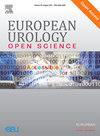Xpert Bladder Cancer Detection in Emergency Setting Assessment (XESA Project): A Prospective, Single-centre Trial
IF 3.2
3区 医学
Q1 UROLOGY & NEPHROLOGY
引用次数: 0
Abstract
Background and objective
Bladder cancer (BC) represents a significant health care challenge and is frequently detected during evaluations for haematuria in emergency departments (EDs). Our aim was to evaluate the clinical performance and economic implications of the Xpert BC Detection (BCD) test for patients presenting to the ED with haematuria to address the pressing need for more efficient and accurate diagnostic tools in this setting.
Methods
We conducted a prospective single-centre observational study in the ED of a tertiary university hospital. Patients presenting with gross haematuria as the primary reason for their visit were enrolled. Urine samples collected in the ED were analysed using the Xpert BCD test. The primary outcomes were sensitivity, specificity, and a cost analysis for the Xpert BCD test in comparison to standard diagnostic methods such as urine cytology (UC) and white-light cystoscopy (WLC).
Key findings and limitations
The Xpert BCD test exhibited superior sensitivity to UC, particularly in identifying high-grade tumours. Importantly, Xpert BCD implementation has the potential to significantly reduce the number of unnecessary WLC procedures and streamline diagnostic pathways. The cost analysis also highlighted potential cost savings for Xpert BCD adoption in the ED setting.
Conclusions and clinical implications
Our findings underscore the promise of Xpert BCD for revolutionising the diagnostic approach to BC in the ED for patients with gross haematuria. Its greater sensitivity and efficiency mean that Xpert BCD has the potential to improve patient care, optimise resource use, and alleviate the economic burden associated with unnecessary procedures.
Patient summary
Xpert Bladder Cancer Detection is a simple urine test that detects the presence of five genes associated with bladder cancer. We found that for patients visiting the emergency department because of blood in their urine, use of this test could save time and money over urine cell analysis (UCA) for ruling out or diagnosing bladder cancer. The test was also more sensitive in detecting higher-grade cancers. More research is needed to confirm our results.
求助全文
约1分钟内获得全文
求助全文
来源期刊

European Urology Open Science
UROLOGY & NEPHROLOGY-
CiteScore
3.40
自引率
4.00%
发文量
1183
审稿时长
49 days
 求助内容:
求助内容: 应助结果提醒方式:
应助结果提醒方式:


